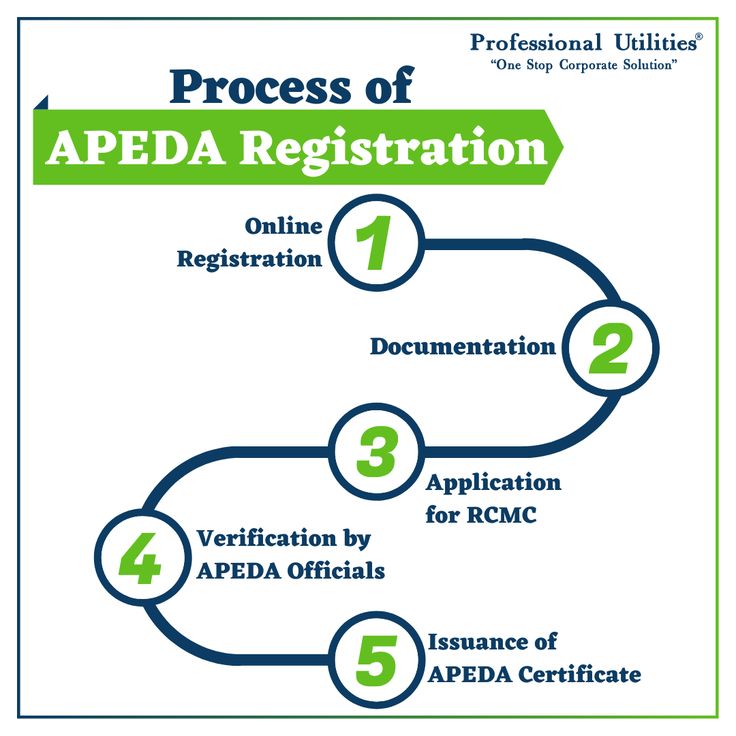
APEDA stands for Agricultural and Processed Food Products Export Development Authority. It is a government organization which was established in 1985. The Government of India has constituted an Export Promotion Council to promote this industry. The largest industry in India is the agriculture industry. To promote this agriculture or process industry the government has created an organization called APEDA. Or any number of exporters who export our specified products. APEDA has been created to provide relief to exporters of all products or to provide relief to the Ministry of Agriculture.
What are the Scheduled Products in APEDA?
As per the APEDA Act, all the specified products are named schedule products. Apart from this, it is mandatory for exporters doing business with scheduled products to register under APEDA. Also if we go for registration under APEDA, it is mandatory for the exporter to get registration under Aayat Niryat. Which is the date of our export and within a month we have to register. Validity of APEDA registration is given for a lifetime unless the authority decides to cancel it.
What are the Types of Scheduled Products in APEDA?
List of Schedule Products Provided Under The First Schedule of APEDA Act,1985.
- Fruits and Veggies: APEDA helps fresh produce and processed items like juices and frozen goods find their way to global shelves by smoothing out market access, improving packaging, and guaranteeing top-notch quality.
- Meat and Poultry: From beef to chicken, APEDA oversees the export journey of meat products, making sure they meet hygiene standards, quality controls, and market demands.
- Dairy Delights: APEDA lends a hand to dairy exports, ensuring that milk powder, cheese, butter, and ghee meet international standards through assistance with cold chain infrastructure and quality testing.
- Sweet Treats: Whether it’s chocolates, biscuits, or bakery goods, APEDA assists in ensuring that confectionery items adhere to food safety regulations, look good in their packaging, and find their way into new markets.
- Sweeteners and Spices: APEDA supports the export of natural sweeteners like honey and jaggery, as well as sugar and related products, focusing on maintaining quality standards and exploring diverse markets.
- Beverage Bonanza: APEDA promotes both alcoholic and non-alcoholic beverages, ensuring they meet regulatory requirements and labeling standards, and have access to global markets.
- Cereals and Nuts: APEDA assists in exporting cereals like rice and wheat, along with nuts such as groundnuts and walnuts, by ensuring food safety, and pest control, and providing market insights.
- Taste of Tradition: Traditional Indian condiments like pickles, papads, and chutneys get a boost from APEDA, which helps in packaging innovation, extending shelf life, and penetrating new markets.
- Natural Thickeners and Aromas: Guar gum, essential oils, and extracts from floriculture and medicinal plants get a helping hand from APEDA to meet quality standards and explore new export destinations.
In short Examples here:-
- MEAT AND MEAT PRODUCT
- POULTRY AND POULTRY PRODUCTS
- DAIRY PRODUCT
- CONFECTIONARY, BISCUITS, AND BAKERY PRODUCTS
- HONEY, JAGGERY, AND SUGAR PRODUCTS
- COCOA AND ITS PRODUCTS
- ALL TYPES OF CHOCOLATES
- ALCOHOLIC AND NON-ALCOHOLIC BEVERAGES
- CEREAL AND CEREAL PRODUCTS
- GROUNDNUTS, PEANUTS AND WALNUTS
- PICKLE, PAPAD AND CHUTNEY
- GAUR GUM
- FLORICULTURE AND FLORICULTURE PRODUCTS
- HERBAL AND MEDICAL PLANTS
What are the functions of APEDA Authorities?
- Encouraging Export-Focused Production: APEDA works to boost the production of certain products that are meant for export. It helps in creating an environment where more goods are produced with the intention of selling them in international markets.
- Monitoring Sugar Imports: APEDA keeps an eye on the import of sugar into the country. It ensures that the quantity and quality of imported sugar meet the necessary standards and regulations.
- Supporting Industry Development: APEDA provides financial assistance and other forms of support to industries involved in producing scheduled products for export. This could include funding for research studies, feasibility assessments, and participation in subsidy schemes aimed at boosting exports.
- Registering Exporters: APEDA registers individuals and businesses as exporters of scheduled products. It also sets standards and specifications for these products to maintain their quality and ensure they meet international export requirements.
- Quality Inspection of Meat Products: APEDA conducts inspections of meat and meat products at various stages, including slaughterhouses, processing plants, and storage facilities. This is done to ensure that these products meet quality standards and are safe for consumption.
- Enhancing Packaging and Marketing: APEDA works on improving the packaging and marketing strategies for scheduled products. This helps make these products more appealing to international buyers and enhances their competitiveness in foreign markets.
- Providing Training: APEDA offers training programs to individuals and businesses involved in industries related to scheduled products. These training sessions cover various aspects of production, processing, and export to enhance the skills and knowledge of industry professionals.
What are the Benefits of APEDA Registration?

- Subsidies for Exporters:
- Exporters receive subsidies from APEDA, which help them in various ways:
- Developing infrastructure: Subsidies can be used by exporters to invest in infrastructure such as warehouses, cold storage facilities, transportation, etc.
- Marketing development: Funds can be allocated towards marketing efforts, including advertising, participation in trade shows, branding, etc.
- Exporters receive subsidies from APEDA, which help them in various ways:
- Increased Awareness:
- Exporters become highly aware of changes related to their scheduled products or developments in the market:
- Being informed about changes allows exporters to adapt quickly, seize opportunities, and mitigate risks.
- This heightened awareness helps in strategic decision-making and ultimately contributes to profitability.
- Exporters become highly aware of changes related to their scheduled products or developments in the market:
- Eligibility through Training Programs:
- Exporters become eligible for benefits by attending training programs conducted by APEDA:
- These programs provide exporters with the knowledge and skills necessary for successful export operations.
- By adhering to APEDA guidelines and participating in training, exporters enhance their competency and credibility.
- Exporters become eligible for benefits by attending training programs conducted by APEDA:
- Dissemination of Information:
- APEDA ensures that information regarding various functions, meetings, and guidelines reaches all exporters:
- This ensures equal access to crucial information, enabling exporters to stay updated on industry trends, regulations, and opportunities.
- Exporters can leverage this information to make informed decisions, optimize their business strategies, and capitalize on available resources.
- APEDA ensures that information regarding various functions, meetings, and guidelines reaches all exporters:
Which Documents Required for APEDA Registration?
- Signed APEDA Registration Application Form:
- Exporters need to fill out and sign the APEDA registration application form.
- This form contains essential details about the exporter and their business, such as contact information, type of products being exported, etc.
- The signed application form signifies the exporter’s agreement to abide by APEDA regulations and guidelines.
- Copy of Import Export Code (IEC) issued by DGFT:
- Exporters must provide a copy of their Import Export Code (IEC) issued by the Director-General of Foreign Trade (DGFT).
- The IEC is a 10-digit code required for conducting import/export activities in India.
- It serves as a unique identifier for the exporter and is necessary for customs clearance and documentation purposes.
- Bank Certificate Signed by the Authorities:
- Exporters need to obtain a bank certificate signed by authorized bank officials.
- This certificate verifies the exporter’s financial standing and confirms their ability to engage in international trade transactions.
- It may include details such as the exporter’s account status, creditworthiness, and financial history with the bank.
- Bank Account Statement of the Last Two Months:
- Exporters are required to submit bank account statements covering the last two months.
- These statements provide a snapshot of the exporter’s financial activity, including incoming and outgoing transactions, balances, and any fluctuations in funds.
- APEDA may review these statements to assess the exporter’s financial stability and compliance with regulatory requirements.
- Cancelled Cheques:
- Exporters must provide canceled cheques associated with their bank account.
- Canceled cheques serve as proof of the exporter’s bank account details, including account number and name.
- They are often used for verification purposes to ensure accuracy in financial transactions and documentation.
How do I get an APEDA Registration Certificate? How Can I Apply for an APEDA Registration Certificate? Step By Step.

Step 1:- Visit the Official Website of APEDA:
- Go to the official website of the Agricultural and Processed Food Products Export Development Authority (APEDA). You can easily find it through a search engine.
Step 2:- Fill the Application Form:
- Navigate to the registration section of the website and locate the online application form.
- Fill out the application form with accurate details about your business, contact information, type of products you intend to export, etc.
- Make sure to double-check all the information before submission to avoid errors.
Step 3:- Submit the Application:
- Scan and attach all the required documents, including:
- Signed APEDA registration application form
- Copy of Import Export Code (IEC) issued by DGFT
- Bank certificate signed by bank authorities
- Bank account statements for the last two months
- Cancelled cheques
Step 4:- Submit the Application:
- After filling out the form and attaching the necessary documents, submit the application electronically through the website.
- Ensure that all documents are uploaded correctly and completely.
Step 5:- Receive RCMC (Registration-cum-Membership Certificate):
- Once your application is processed and approved, you will receive the Registration-cum-Membership Certificate (RCMC) from APEDA.
- The RCMC serves as proof of your registration with APEDA and membership in their export promotion scheme.
Step 6:-Track Application Status:
- You can track the status of your application using the exporter track KR (Know Your Risk) feature provided on the APEDA website.
- This allows you to monitor the progress of your application and identify any potential issues or delays.
Step 7:- Application Approval by Traffic of Authority:
- If everything is filled correctly and meets the necessary criteria, your application will be approved by the relevant authority within APEDA.
- The approval process ensures compliance with regulations and confirms the eligibility of the exporter.
Step 8:- Receive Registration Certificate:
- Upon successful approval, you will be issued the APEDA Registration Certificate.
- This certificate officially recognizes your status as a registered exporter with APEDA, allowing you to engage in agricultural and processed food exports.

